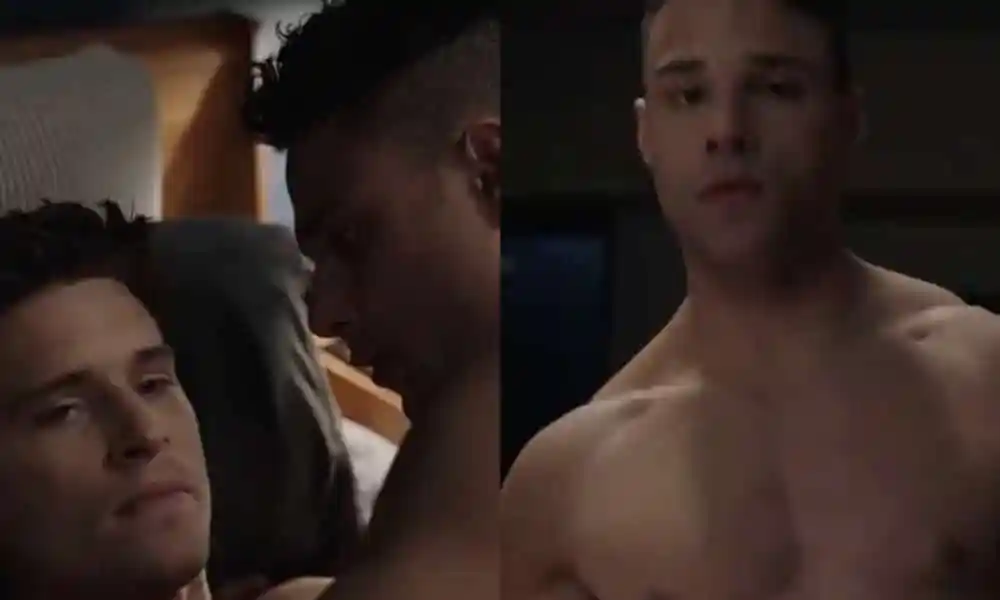
TK Strand (Ronen Rubinstein) and his partner, Carlos Reyes (Rafael Silva). (Screen capture via Twitter/Fox)
As always, thing got pretty hot on 9-1-1: Lone Star during Monday’s (10 May) episode – but we’re not talking about the fire here.
The Ryan Murphy drama centres on first responders working for the fire, police and ambulance departments in Austin, Texas.
Not only does the show feature one of the first Black trans men in a regular role on network television, but its sensitivity to LGBT+ issues even emboldened one of the cast to come out as bisexual.
And in the second season’s 12th episode, the temperature rises as paramedic TK Strand (Ronen Rubinstein) and his police officer partner Carlos Reyes, played by Rafael Silva, make out in a gloriously queer, sweaty and steamy scene.
🥵🥵🥵
That’s it. That’s the tweet. #Tarlos #911LoneStar pic.twitter.com/i7oK1nEhKo
— 9-1-1: Lone Star (@911LoneStar) May 11, 2021
And smoky, too. Literally. As they hook up, Reyes’ home is engulfed in a fire which brings the session to a grinding halt. But at least the symbolism is cool, right?
It’s overall a rollercoaster of a 9-1-1: Lone Star episode for “Tarlos” – that’s their ship name for the uninformed – which sees the couple’s respective parents meet for the first time at dinner.
A huge leap for any couple, especially when Strand’s father happens to be former Manhattan firefighter Owen Strand, played by Rob Lowe, a man who is 99 per cent jawline.
In playing a gay role on the Fox programme, Rubinstein was inspired to come out as bisexual in April. Silva himself is openly gay and has been for years.
He opened up about his sexuality in an interview with Variety, telling the publication: “I fully identify as bisexual.”
“I literally just got goosebumps saying that,” he continued. “It feels so good to talk about it, it feels so good to finally be comfortable with it.”
Rubinstein moved to the US from Israel when he was five years old, he recalled, and was haunted by the homophobia he experienced growing up.
“The biggest thing for me is where I come from, it’s like people like me and people who have identified as bisexual or gay or as any part of the community, you’re just not welcomed. It’s as brutally honest as that,” he explained.
“It’s either you faced insane amounts of profanity like the F-word was thrown around all the time or you would get your ass kicked if you were gay.
“So there was definitely a fear of sort of embracing how I felt. I was definitely more aware of it in high school.
“I was aware of my feelings and how I started looking at men, but I couldn’t talk to anybody about it.”

